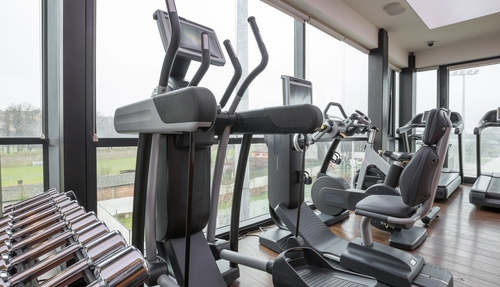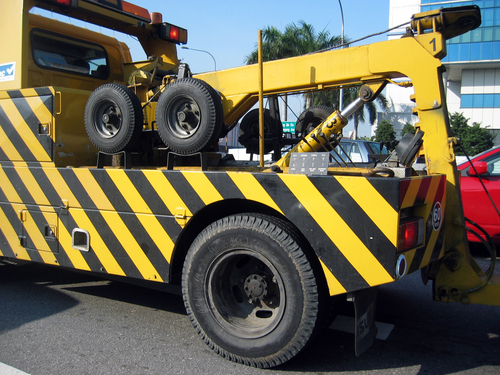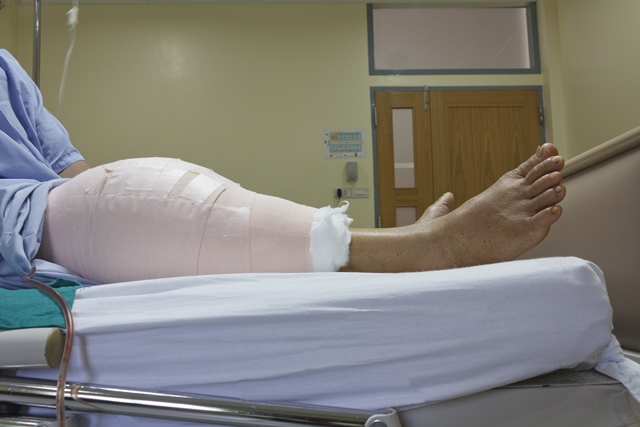By Kevin Calcagnie on September 24, 2015 -

Uriell v. Regents of University of California (4th Dist., January 29, 2015) 234 Cal.App.4th 735, 184 Cal.Rptr.3d 79, 15 Cal. Daily Op. Serv. 1788, 2015 Daily Journal D.A.R. 2028
The family of a woman who died as a result of breast cancer filed an action for medical malpractice against Regents of the University of California. The plaintiffs alleged that the decedent’s physicians at the UC San Diego Medical Center had failed to timely diagnose her cancer in 2007, resulting in her death in 2010, but that had she been timely diagnosed she would have survived ten more years.
Following a jury verdict in favor of the plaintiffs the defendant appealed, contending that the trial court had failed to properly instruct the jury on the issue of causation when it gave the standard jury instructions on substantial factor (CACI 430) and multiple causes (431), without a special instruction the defendant had requested, stating: “Causation must be proven within a reasonable medical probability based upon competent expert testimony. Mere possibility alone is insufficient to establish a prima facie case.”
The court of appeal affirmed, rejecting the defendant’s argument that the standard instructions confused the jury or diluted the standard for causation in a medical malpractice case: Read the rest »
By Kevin Calcagnie on September 21, 2015 -

Wilson v. Southern California Edison (2nd Dist., February 9, 2015) 234 Cal.App.4th 123, 184 Cal.Rptr.3d 26.
A woman filed a complaint for damages against Southern California Edison Company, contending that stray voltage generated by a neighboring substation owned by the utility entered into her home, causing her to sustain electrical shocks. Asserting, inter alia, a cause of action for intentional infliction of emotional distress, the plaintiff alleged that the defendant knew of the stray voltage entering the home, which the defendant had previously owned, but had failed to properly operate, maintain, or control the substation, and failed to maintain the safety of the residents living next to the substation. The plaintiff further alleged that that the level of stray voltage was dangerous, as evidenced by physical injuries she suffered, and that Edison’s decision to put the property on the market, its failure to eliminate the stray voltage, and its failure to warn caused her extreme emotional distress due to her physical injuries and fear of harm to herself and her children.
Following a substantial jury verdict in favor of the plaintiff the defendant appealed, contending that there was no substantial evidence that it engaged in any extreme or outrageous conduct directed at the plaintiff, and therefore she could not recover on her IIED claim. The court of appeal reversed and remanded the judgment on the IIED claim, holding that the evidence was insufficient to establish extreme or outrageous conduct by the defendant: Read the rest »
By Kevin Calcagnie on September 17, 2015 -
 Grebing v 24 Hour Fitness USA, Inc. (2nd Dist., January 29, 2105) 234 Cal.App.4th 631, 184 Cal.Rptr.3d 155.
Grebing v 24 Hour Fitness USA, Inc. (2nd Dist., January 29, 2105) 234 Cal.App.4th 631, 184 Cal.Rptr.3d 155.
A health club member who was injured while using exercise equipment known as a “low row machine” filed suit against the facility, asserting various theories of negligence and products liability. The plaintiff alleged that a connecting clip broke while he was pulling a handlebar connected to a cable running through pulleys and attached to weights, causing the handlebar to strike him in the forehead.
The defendant moved for summary judgment, arguing that the plaintiff had signed a release of liability assuming the risk of injury, which included the language: “Further, you understand and acknowledge that 24 Hour does not manufacture fitness or other equipment at its facilities, but purchases and/or leases equipment. You understand that 24 Hour is providing recreational services and may not be held liable for defective products.” The plaintiff opposed the motion, arguing that the defendant was in the chain of distribution and did not merely provide fitness services.
The trial court granted summary judgment and the court of appeal affirmed, holding that although products liability claims cannot be waived, the dominant purpose of the agreement was for services and not for provision of a product: Read the rest »
By Kevin Calcagnie on September 14, 2015 -

State ex rel. Dept. of California Highway Patrol v. Superior Court (Supreme Ct. of Calif., February 26, 2015) 60 Cal.4th 1002, 343 P.3d 415, 184 Cal.Rptr.3d 354.
A woman and her child who were injured when they were struck by a tow truck on Interstate 5 brought an action for personal injuries against the tow truck driver and his employer, as well as various public entities, including the California Highway Patrol. The plaintiff alleged that the tow truck was being operated under the Freeway Service Patrol (FSP) Act, a program jointly administered by the California Department of Transportation, the CHP, and local transportation agencies, under which motorists receive free emergency roadside assistance as a public service on California’s busiest highways. (Sts. & Hy.Code, § 2560 et seq). The plaintiff further alleged that the CHP was a special employer of the driver because it had contracted with the Orange County Transportation Authority overseeing the local program, to provide field supervision, program management, and oversight of contractor service quality.
The CHP moved for summary judgment, contending that there was no special employment relationship. The trial court denied summary judgment, but certified the question to the court of appeal. The court of appeal ruled that the CHP cannot be such a special employer as a matter of law, and directed entry of summary judgment. On review the California Supreme Court reversed and remanded, holding that although the statutes were incompatible with a special employment relationship between the CHP and tow truck drivers, that did not foreclose the possibility that the CHP could be a special employer: Read the rest »
By Kevin Calcagnie on September 11, 2015 -

Fazio v. Fairbanks Ranch Country Club, — Cal.Rptr.3d —-, 2015 WL 367100
A professional musician who was injured when he fell from a stage while setting up equipment for his bass guitar prior to a performance, filed suit against the property owner. The plaintiff alleged that the defendant was negligent, and that the premises were in a defective and dangerous condition, in that the configuration of the stage had significant gaps at the sides creating an unreasonable risk of harm. The defendant moved for summary judgment, arguing that it owed no duty to the plaintiff to configure the stage in any particular way, and because the plaintiff assumed the risk of his injuries.
The trial court granted summary judgment, finding that the doctrine of primary assumption of the risk barred the claim, and rejecting the plaintiff’s contention that the gaps at the side of the stage increased the risk of falling. However, the court of appeal reversed, holding that the defendant had not met its initial burden of proof, and that even if it had, disputed issues of material fact remained concerning whether the defendant breached its duty not to increase the inherent risks: Read the rest »
By Kevin Calcagnie on September 3, 2015 -

Gonsalves v. Li, — Cal.Rptr.3d —-, 15 Cal. Daily Op. Serv. 375, 2015 Daily Journal D.A.R 473
A BMW salesman who was injured in a collision while riding as a passenger during a new vehicle test drive, filed suit against the driver who had caused the accident. At trial counsel for the plaintiff called the defendant as an adverse witness and, over multiple defense objections, extensively examined him regarding his responses to requests for admissions. When the defendant testified in the defense case-in-chief, plaintiff’s counsel again asked questions in cross-examination about his responses to the RFA’s, despite objections that questions about the denials were argumentative, called for legal opinions or were contention questions.
The trial court overruled the objections and admitted the RFA’s into evidence. In closing argument, plaintiff’s counsel urged the jury to consider the defendant’s failure to admit in response to the RFA’s that his pressure on the accelerator was a substantial factor in causing the accident, as evidence of his failure to take responsibility for the plaintiff’s injuries.
Following a jury verdict in favor of the plaintiff the court of appeal reversed, concluding that the discovery statutes do not authorize admission at trial of denials to RFA’s and that the trial court erred in allowing plaintiff’s counsel to examine the defendant about his qualified denials, and in admitting the written responses to the RFA’s: Read the rest »
By Kevin Calcagnie on August 31, 2015 -

Blevin v. Coastal Surgical Institute, — Cal.Rptr.3d —-, 15 Cal. Daily Op. Serv. 310, 2015 Daily Journal D.A.R. 383
A patient who developed a bacterial infection after knee surgery as a result of contaminated surgical equipment filed an action for medical malpractice against the surgical facility where the surgery was performed. The defendant contended that the action, which was filed over 15 months after the surgery, was barred by the one-year limitations period of Code of Civil Procedure section 340.5. In opposition, the plaintiff argued that because the defendant had paid for his medical expenses incurred in treating the infection when he was not represented by counsel, and had not advised him of the statute of limitations, the statute was tolled under Insurance Code Section 11583.
The trial court ruled that section 11583 tolled the one-year statute of limitations and the court of appeal affirmed, holding in a case of first impression that that the tolling provisions of section 11583 apply to the one-year limitations period for medical malpractice actions: Read the rest »
By Kevin Calcagnie on August 27, 2015 -

Velasquez v. Centrome, Inc., — Cal.Rptr.3d —-, 2015 WL 400543
An undocumented immigrant who developed a progressive lung disease while working at a manufacturing facility, filed suit against a supplier of various chemical compounds to which he was exposed on his employer’s premises. Asserting various products liability theories, the plaintiff contended that the products were defective and that the defendant had violated regulations governing mandatory hazardous materials warnings.
Prior to trial the plaintiff filed a motion in limine to preclude any evidence or comment about his immigration status. Following a 402 hearing in which the plaintiff’s expert testified that if the plaintiff were in the country illegally and subject to deportation, it would have an impact on his ability to obtain a transplant, the trial court denied the motion, and informed prospective jurors of the plaintiff’s undocumented status.
When experts testified at trial that new policies would prevent the plaintiff’s immigration status from affecting his ability to receive a transplant, the court ruled that the plaintiff’s immigration status was irrelevant, but denied the plaintiff’s motion for a mistrial. Following a defense verdict the plaintiff appealed, contending that the trial court erred when it denied the motion for mistrial after the evidence showed the irrelevance of his immigration status. The appellate court agreed and reversed: Read the rest »
By Kevin Calcagnie on August 25, 2015 -

Eriksson v. Nunnink, — Cal.Rptr.3d —-, 2015 WL 332278
The parents of a 17-year-old equestrian competitor who was killed when the horse she was riding tripped over a hurdle and fell on her, filed an action for wrongful death and negligent infliction of emotional distress against their daughter’s riding coach. Although the girl and her mother had signed a liability release, assuming all risks and holding the coach harmless from any and all claims, the plaintiffs alleged the coach had unreasonably increased the risk of harm to the decedent by knowingly permitting her to ride a horse which she knew to be unfit because of prior falls and lack of practice.
Following presentation of the plaintiffs’ case-in-chief the trial court granted judgment for the defendant, finding that because the defendant’s negligence did not rise to the “direct, willful and wanton” level of recklessness, the plaintiffs were barred from recovery on both the wrongful death claim and the NIED claims. The court of appeal affirmed, concluding that “where a participant in a sport has expressly assumed the risk of injury from a defendant’s conduct, the defendant no longer owes a duty of care to bystanders with respect to the risk expressly assumed by the participant”: Read the rest »
By Kevin Calcagnie on August 21, 2015 -

Vargas v. FMI, Inc., — Cal.Rptr. —-, 15 Cal. Daily Op. Serv. 861, 2015 Daily Journal D.A.R. 1014
An independent contractor who was part of a two-man team driving a tractor-trailer cross-country was in the truck’s sleeper berth when the driver rolled the vehicle over, causing him to sustain injuries. The injured passenger filed suit against the driver and the motor carrier and trailer owner, as well as the hiring contractor who had hired them, contending that the carrier owed him a nondelegable duty of care and that the defendants were vicariously liable for the driver’s negligence.
The trial court granted summary judgment, finding that because the plaintiff and the driver were independent contractors, and the duty to provide a safe working environment is implicitly and presumptively delegated in all independent contractor agreements, there could be no liability for the negligence of the driver. However, the court of appeal reversed, holding that the Federal Motor Carrier Act (49 United States Code section 13101 et seq.), precludes delegation of the tort law duty that motor carriers owe to independent-contractor drivers: Read the rest »
 RSS
RSS









 Los Angeles
Los Angeles